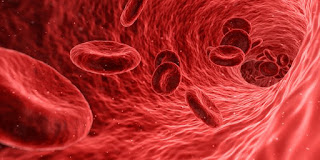
Foods You Should Avoid if You Have Hypertension
High blood pressure, also known as hypertension, is one of the leading risk factors for heart disease, stroke, and kidney problems worldwide. It is often called the “silent killer” because it develops without obvious symptoms but causes long-term damage to vital organs. While genetics and lifestyle play a role, diet has one of the biggest influences on blood pressure. Certain foods can worsen hypertension by increasing sodium levels, narrowing blood vessels, or straining the heart. Avoiding or limiting these foods is a powerful way to keep your blood pressure under control.
1. Salty and Processed Foods
Sodium is the number one dietary culprit for hypertension. Excess salt makes the body retain water, which raises blood volume and increases pressure on the arteries. Common high-salt foods include:
- Packaged snacks like chips, crackers, and salted nuts
- Canned soups and vegetables
- Instant noodles and bouillon cubes
- Frozen meals and processed meats (bacon, sausage, ham, hot dogs)
Tip: Read food labels carefully and choose products labeled “low sodium” or “no added salt.”
2. Red and Processed Meats
Regular consumption of red meats such as beef, pork, and lamb is linked to higher blood pressure. Processed meats are especially harmful because they contain added sodium, preservatives, and unhealthy fats.
- Examples: bacon, deli meats, sausages, corned beef, and pepperoni.
These foods also contribute to weight gain, which worsens hypertension.
Alternative: Choose lean proteins like skinless chicken, fish, beans, and lentils.
3. Foods High in Saturated and Trans Fats
Unhealthy fats raise cholesterol levels, stiffen blood vessels, and make it harder for the heart to pump blood. This increases the risk of hypertension-related complications.
- Sources include: fried foods, fast foods, pastries, butter, margarine, and commercially baked goods.
- Trans fats, often found in processed snacks, are the most dangerous for heart health.
Tip: Replace these with healthy fats from olive oil, avocados, nuts, and fatty fish like salmon.
4. Sugary Foods and Beverages
Excess sugar contributes to weight gain, insulin resistance, and metabolic syndrome, all of which raise blood pressure.
- Avoid sodas, sweetened juices, candy, desserts, and energy drinks.
- Even seemingly healthy fruit-flavored yogurts and breakfast cereals may contain high amounts of added sugar.
Alternative: Opt for fresh fruits, unsweetened yogurt, and water infused with lemon or cucumber.
5. Alcohol
Drinking too much alcohol raises blood pressure and reduces the effectiveness of hypertension medications. Over time, it can also damage the liver and heart.
- More than one drink per day for women and two for men increases the risk significantly.
Tip: If you drink, do so in moderation, or better still, cut it out completely.
6. Refined Carbohydrates and White Bread
Refined grains are stripped of fiber and nutrients, causing rapid spikes in blood sugar and contributing to weight gain. These effects worsen blood pressure control.
- Examples: white bread, white rice, pasta, pastries, and sugary cereals.
Alternative: Choose whole grains like brown rice, oats, whole wheat bread, and quinoa.
7. Pickled and Fermented Foods with High Salt
While some fermented foods are healthy, many pickled products contain extremely high levels of sodium for preservation.
- Examples: pickles, sauerkraut, and certain sauces (soy sauce, fish sauce).
Tip: Limit intake or rinse them before eating to reduce sodium.
8. Caffeinated Beverages (in Excess)
Caffeine can cause a temporary spike in blood pressure by stimulating the nervous system.
- Coffee, energy drinks, and strong tea are common sources.
- For people sensitive to caffeine or those with uncontrolled hypertension, these beverages can be risky.
Tip: Limit coffee to 1–2 cups daily and choose decaf or herbal teas.
Final Thoughts
Managing hypertension is not only about what you eat but also what you avoid. Reducing salt, sugar, and unhealthy fats while steering clear of processed and alcohol-heavy diets helps protect your heart and blood vessels. Instead, focus on a balanced diet rich in fresh fruits, vegetables, whole grains, lean proteins, and healthy fats. Combined with regular exercise, stress management, and good sleep, healthy eating can go a long way in keeping your blood pressure in check.



